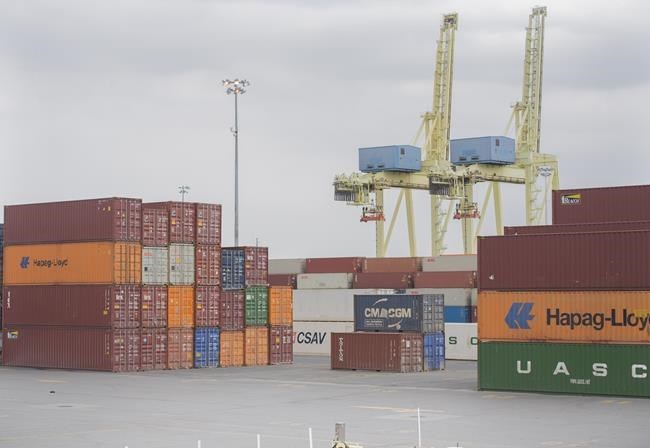TORONTO — Stephen Taub says he knew exactly where a Range Rover stolen from his Toronto driveway was located, thanks to a tracking device. But he had to travel all the way to Montreal himself to recover it.
Taub, a 64-year-old investment banker who lives in Toronto's affluent Forest Hill neighbourhood, said two Range Rovers were stolen from his driveway in the past year -- thefts that highlight how difficult it is for owners to get their vehicles back, if at all.
Taub said thieves stole his first Range Rover in March by drilling a two-inch hole in its rear hatch to access the wiring and start the vehicle, after presumably disabling its locks and internal GPS electronically.
The luxury SUV effectively disappeared, Taub said, prompting him to buy a second Range Rover installed with a radio-frequency tracking device.
When his second Range Rover was stolen weeks after the first, it was initially tracked to the Canadian Pacific Railway yard in Toronto's east end and just days later to a shipping container in the Port of Montreal. Taub said the provider of the tracking device, Tag, shared the car's location with the Canada Border Services Agency (CBSA), which subsequently set that container aside.
However, Taub said the CBSA told him it could take as long as four months to open the container due to the agency's staffing shortages, and that it could still be shipped despite being set aside.
Taub's stolen luxury vehicles are part of a countrywide surge in vehicle thefts that has reached a "crisis level," according to a June report from insurance industry group Equite Association.
Many stolen cars are illegally shipped via the Port of Montreal to profitable markets abroad. According to Equite's 2022 trend report, car thefts rose by more than 48 per cent from the previous year in Ontario and by 50 per cent in Quebec.
The Toronto Police Service reported 9,606 vehicle thefts in 2022, compared to 3,284 thefts in 2015. Organized crime rings target new and luxury vehicles to maximize profit overseas, according to the Equite report.
Taub said he was frustrated by what he called the lacklustre efforts of both police and the CBSA to recover his stolen vehicle tracked to the Port of Montreal. He said he ultimately travelled to the CBSA office in Montreal on May 22, and the agency arranged for him to retrieve his Range Rover from the container at the port the next day.
"If I didn't go there, I never would have gotten the car back," said Taub.
CBSA media relations manager Guillaume Bérubé did not directly confirm or deny Taub's account in an emailed response to The Canadian Press.
"In cases where the CBSA intercepts stolen vehicles at the point of export, the Agency works in partnership with the local police of jurisdiction, and other intelligence sources and relies on referrals from partners," said Bérubé. "The details and timeliness of referrals often determines the extent of action that may be taken by the CBSA."
The CBSA said it "cannot speculate (on) the likelihood" of Taub recovering his vehicle from the Port of Montreal had he not personally visited the agency's Montreal office.
The CBSA said it assesses all marine containers departing from the Port of Montreal for the risk of stolen cargo. Bérubé said containers may be inspected by non-intrusive means such as X-rays and examined afterwards to establish legitimate ownership of the cargo.
Bérubé said the CBSA intercepted a total of 1,348 stolen vehicles before they were shipped abroad in 2022. The rate of stolen vehicle recovery across Ontario was 45 per cent that year, and the national recovery rate was 57 per cent, according to the Equite report.
This report by The Canadian Press was first published July 27, 2023.
———
This story was produced with the financial assistance of the Meta and Canadian Press News Fellowship.
Kiernan Green, The Canadian Press

